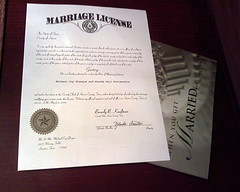Rethinking the Cease and Desist: Don’t Threaten Fan Communities and Groups, License Your Brand to Them
I want to expand on something that we discussed on the August 8 episode of the SitePoint Podcast, about the cease and desist and how it negatively impacts brands when used poorly, especially against fans.
Strong fan communities are gold to the companies, individuals, products and things that they are a fan of. You just can’t buy this sort of promotion and marketing. Why is it so special?
- In some form or another, they love you and/or they want to love you.
- They spread the word about you.
- They give you their money, by buying whatever it is that you do.
- They talk about you regularly, even in your moments of downtime.
- They don’t cost you any money! The community was set up without you, run without you and does not involve you, by default.
It’s organic and wonderful.
But, Then You Blow It
Yet, I see some companies totally mess it up by freaking out about the use of trademarks on the site or in domain names. Maybe it’s not the company or their leadership, but the attorneys on retainer who are actively monitoring these things and do not have the foresight to think about the situation. Instead, they opt to send out a boilerplate, threatening, accusatory and false cease and desist.
What happens then? They have personally attacked the fan community and the people behind it. The relationship with your brand has been damaged. It may never return and you have just lost fans (maybe a lot of them) and money (maybe a lot of it).
I’ve been on the receiving end of a handful of cease and desist letters before and it makes me wonder if any actual thought was put into them. They say the nastiest things, accusing people of lying, stealing and deception. Why in the world would you ever talk to your real fans in this manner? You should be thanking them and helping them be bigger fans, not threatening them.
“But, but… you have to defend your trademarks or you’ll lose them!” Yes, I know. The old fall back. That’s fine and dandy. But, it’s not an excuse to treat fan communities like garbage, though. It is crazy to me that companies do this at all.
The Solution: License Your Brand
I believe I have the solution. You have to control your trademark. You also don’t want to abuse your vibrant fan base. You feel you are between a rock and a hard place. The solution? License your brand to the site and/or it’s proprietors.
Provide them with a license allowing them to do what they are already doing. Have your trademarked brand in their domain name and on their website, as long as they are clear that they are an unofficial site (they likely are already doing this).
Do not, I repeat, do not place overly restrictive (smothering) or nonsensical requirements in this license, such as “you may not make any money” or “you may not have any advertisements.” Running a fan community can be a full time job. They have to eat and they have dreams, too. It may be a labor of love, but it’s still a labor.
More examples of bad requirements would be dictating how they handle criticism of your brand, specifying that they may not criticize you and forcing them to manage the site in a certain style.
However, place restrictions that are worthwhile or that may be needed. For example, it most likely makes sense to allow them to sell merchandise with their website name and logo on it, but they probably shouldn’t sell merchandise with your logo on it. Another good restriction, if the brand is a software company, would be to ask them not to allow pirated versions of the software to be promoted (they are probably already doing this). Those sorts of things.
I would imagine that the license could be time based and subject to automatic renewal unless the brand cancels the arrangement with a certain number of days notice. Just to be safe and to protect everyone, in case the site changes. This time period shouldn’t be short – I don’t see why it would need to be any shorter than 1 year.
By licensing your brand, you are controlling your trademark and giving them permission to use it. You have defended it and reserve the right to defend it further with other parties.
Save the Tough Talk for the Bad Guys
The cease and desist is needed. But, not for fan communities. Save the tough talk for the people actually doing bad things with your brand. People who are selling pirated or knock off versions of your product, who are telling people they are official when they are not and who are genuinely and intentionally misleading consumers.
And, even if the fan sites make a mistake, be friendly about it. You make mistakes and want them not to jump all over you, right? Treat them the same way. Drop them a personal note just to say hi, check in and bring this to their attention, to see what they can do about it. Go easy on demands and ultimatums. See what they suggest. Maybe there are extenuating circumstances that you are not aware of.
The key is to build great relationships with your fans. Not force them to conform to your branding standards, do everything that you want and be happy about it. It’s a give and take.


